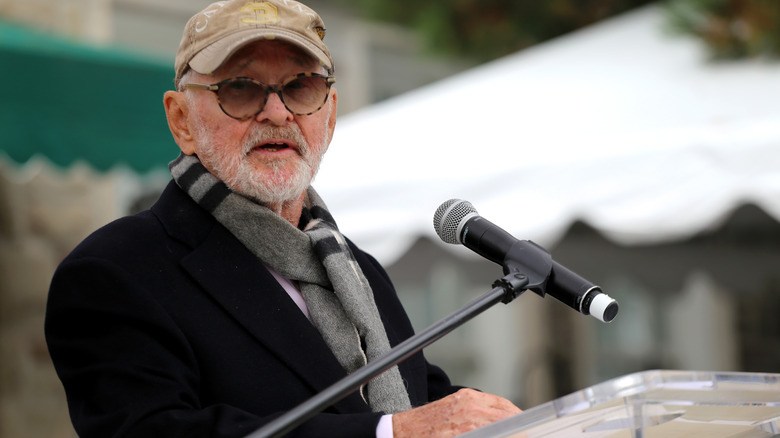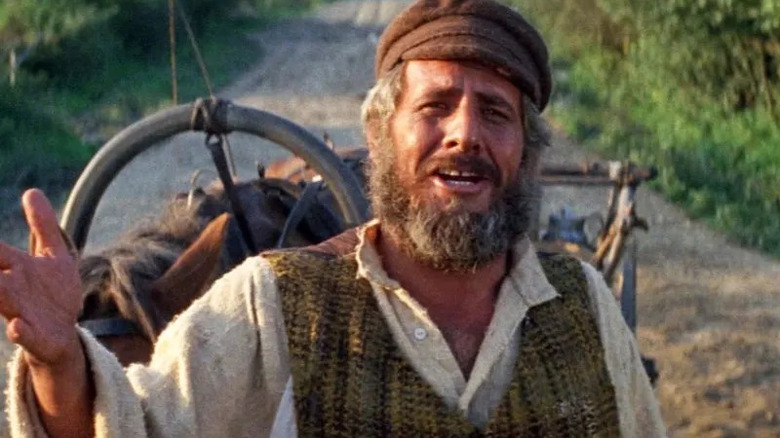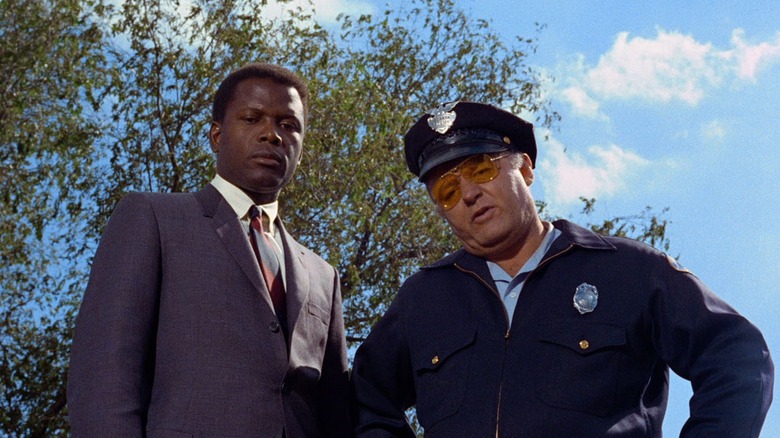Legendary Director Norman Jewison, Known For Moonstruck And In The Heat Of The Night, Dead At 97
Norman Jewison, the celebrated film director, has died. He was 97. According to the Hollywood Reporter, the filmmaker passed away at his home on Saturday, January 20, 2024.
Jewison had a long and varied directing and producing career that was peppered with accolades. His films "Moonstruck," "A Soldier's Story," "Fiddler on the Roof," "In the Heat of the Night," and "The Russians Are Coming, the Russians Are Coming" were nominated for Best Picture at the Academy Awards in 1987, 1984, 1971, 1967, and 1966 respectively, with "Heat of the Night" winning. Jewison also helmed dozens of other notable dramas and musicals besides, including "The Thomas Crown Affair" (nominated for two Oscars, winning one), "Gaily, Gaily" (nominated for three Oscars), "Jesus Christ Superstar" (nominated for one Oscar), "...And Justice for All" (two), "Agnes of God" (three), and "The Hurricane" (one).
All told, Jewison's films were nominated for 41 Oscars, winning 12. He also directed the sci-fi thriller "Rollerball," the comedy "Bogus," the romance "Only You," the Stallone drama "F.I.S.T.," and the Steve McQueen gambling thriller "The Cincinnati Kid." Jewison was a rare Hollywood superstar who could bring panache to every single genre he worked in, and capably team with any actor or actress to get natural, wonderful performances. His musicals are first-rate ("Fiddler on the Roof" remains a seminal American classic), his dramas are accessible and honest, and his romances are exhilarating; "Moonstruck" is a work of art.
Jewison spent the first decade of his directing career in television, beginning with episodes of "The Big Revue" in 1953. His first feature film was the broad 1962 Tony Curtis vehicle "40 Pounds of Trouble." His final film was the post-WWII thriller "The Statement" in 2003. He retired after 50 years in showbiz.
Norman Jewison's astonishing filmography
Few modern directors have the same capabilities as Jewison. He was nimble and prolific, but rarely inserted himself into his work as a standout auteur; there isn't a signature Jewison "style." Instead, he was a master craftsman, instinctively knowing what each genre needs, and what kinds of actors and characters he wanted in them. He tended to work with charismatic performers who could carry scenes and interact with other equally charismatic actors. "In the Heat of the Night" saw a racist cop (Rod Steiger) teaming up with a Black big-city detective (Sidney Poitier) to solve a murder. "The Thomas Crown Affair" was a sexy heist movie that found glorious chemistry between Steve McQueen and Faye Dunaway. Many Hollywood actors were eager to work with Jewison, and looking at his many collaborators reveals a savviness with actors that few directors seem to possess.
Jewison talked about his origins in the business in a 2011 interview with NPR, recalling how he hitchhiked from his native Toronto at the age of 18 to eventually settle in Chicago, and then Memphis. At one point he boarded a bus and moved to sit at the back, only to be admonished by the driver, who pointed out the "Colored people to the rear" sign.
"I turned around and I saw two or three black citizens sitting around me, and ... a few white people sitting way at the top of the bus. And I didn't know what to do, I was just embarrassed. So I just got off the bus and he left me there. I was left standing in this hot sun and thinking about what I had just been through. That this was my first experience with racial prejudice. And it really stuck with me."
Exploring prejudice
Jewison carried that symbol of prejudice in his mind for years, eventually addressing its hate in some of his films. Notably, fighting racism and prejudice were central themes of "In the Heat of the Night," "A Soldier's Story," and "The Hurricane." In Hollywood, Jewison encountered prejudice frequently. He recalled that he once butted heads with one of the producers of "Your Hit Parade" who claimed that the show would never feature Black performers or even younger artists. This was after Jewison booked a singer named Tommy Edwards (writer of "It's All in the Game") to appear. Jewison put his foot down, the sponsors backed down, and Edwards appeared.
After that story made its way around Hollywood, Jewison became highly sought after. Indeed, in 1981, Jewison was called in to produce the Academy Awards telecast, as the show had been delayed after the attempted assassination of Ronald Reagan. Experienced with TV specials (he also worked with Judy Garland, Harry Belafonte, and many others), Jewison was equal to the task.
Jewison split his time between America, Canada, and England throughout his career (he moved to England for seven years after Kennedy was assassinated), and eventually founded the Canadian Film Centre, one of the country's most prestigious film schools.
Norman Jewison always looked for love, art, and inspiration. Hollywood has lost one of its giants.


